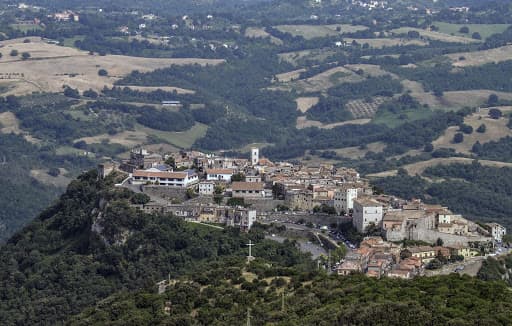ROME – Anyone seeking a religion run on the basis of strict logic probably would do well to steer clear of the Catholic Church, which is simply too big, too diverse, and, well, too conditioned by its headquarters in Italy to make sense all the time.
One area in which those internal contradictions are especially clear these days is its approach to the LGBTQ+ community, as the recent case of an Italian priest who presided over the civil union of a lesbian couple on the outskirts of Rome neatly illustrates.
When it comes to LGBTQ+ individuals, the Church tries to defend two ideas at once. The first is that they’re children of God worthy of respect and dignity, therefore any form of discrimination is wrong, and they should be welcome in the Church. The second is that marriage is between a man and a woman and sexual activity is only licit within that context, so that “gay marriage” is impossible and an LGBTQ+ person who’s sexually active falls short of God’s plan.
Trying to hold those two ideas together can be complicated, as Father Emanuele Moscatelli, former pastor of the Church of St. Lawrence the Martyr in the small town of Sant’Oreste, part of the province of Rome and therefore immediately subject to the Vatican, probably could tell you right about now.
Recently two lesbian friends of Moscatelli, identified in the Italian press as Beatrice, 50, and Francesca, 38, decided to enter into a civil union that provides most of the legal standing and benefits of marriage, and which has been legal in Italy since 2016. (For the most part Pope Francis stayed out of that Italian debate, aside from reiterating Church teaching that the word “marriage” applies only to a man and a woman.)
Obviously wanting to support his friends Moscatelli went to the mayor of Sant’Oreste, Valentina Pini, and asked if he could have permission to preside over the civil ceremony. She agreed and gave authorization for Moscatelli to use a sash in the colors of the Italian flag which mayors and other city officials in Italy wear when they’re participating in public ceremonies – though according to Pini, she also warned Moscatelli that he might want to consider the blowback such a gesture could cause.
The ceremony took place on July 11 in the Sant’Oreste city hall, with Moscatelli presiding.
Ten days later, Bishop Romano Rossi of Civita Castellana, the diocese to which Sant’Oreste belongs, announced that Moscatelli had resigned his post as pastor after realizing that what he’d done was “inopportune,” citing a provision in canon law that prevents a priest from officiating at a civil wedding, and said he would be given a period for reflection and discernment.
Rossi insisted, however, that the resignation and time away is not a punishment.
“We dialogued. This isn’t a decision by authority, and there’s no censure involved. He decided it’s opportune to resign,” Rossi said.
The bishop also said that nothing is off the table in terms of what comes next.
“In the Church you dialogue, and that’s what I did with Emanuele,” Rossi said. “After the period of reflection, he won’t be able to be the pastor at Sant’Oreste, but once certain things are clarified he can do anything, when the moment comes.”
Predictably, the case has galvanized Italian Catholic opinion. More conservative and tradition-minded Catholics are outraged that Moscatelli hasn’t been formally censured for his conduct, arguing that he’s effectively espoused heresy by undercutting Catholic teaching on marriage. They’re also upset with Rossi for, in their eyes, not taking the matter more seriously.
Meanwhile, progressive Catholics supportive of gay rights have expressed skepticism that Moscatelli’s resignation was truly voluntary, and many suspect his period of reflection is effectively a prelude to laicization.
Some such commentators point out that blessing same-sex unions has become, if not accepted pastoral practice in the Catholic Church in Germany and Austria, at least not terribly uncommon, and they wonder why an Italian priest is being held to a different standard. They note that even Cardinal Christoph Schönborn of Vienna, a close ally and advisor to Pope Francis, reportedly offered a blessing for a gay couple in 2018 – though a spontaneous blessing at a dinner, which is what one of the participants later said happened, is a far cry from actually leading a wedding ceremony in city hall.
Further, sympathizers of Moscatelli argue that beyond being a priest he’s also an Italian citizen, and what he does in his private capacity as a citizen ought to be beyond Rossi’s purview. Critics fire back that we’re not talking about filing his taxes or renewing his driver’s license, but about a priest publicly leading a ceremony that appears to contradict Church teaching and even, according to some, could be interpreted as the canonical crime of simulation of a sacrament.
Probably understandably, Moscatelli himself declined a Crux request for comment on his situation.
Running through all this in miniature, of course, are eternal tensions in Catholicism between clarity and compassion, judgment and mercy, inclusion and identity. As applied to the LGBTQ+ world, it also shows that whatever the Church’s new pastoral equilibrium may finally become, it remains a work in progress.
Follow John Allen on Twitter at @JohnLAllenJr.














